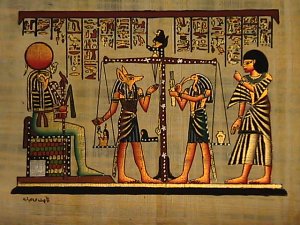Most people from Western culture countries have a nominal understanding of Karma which simplifies it down to a check and balance system. There seems to be no positive Karma in that there’s no way you can have so many positive Karma points that doing something negative is unremarkable. Karma is seen as negative and something that has to be “worked off” like credit card debt and people are bad for having it and better for not having it although no one other than the Dalai Lama seems to actually be good. All of which can be summarized by the trite phrase “Karma is a bitch.”
 Clients and students talk to me about karma quite often because they are afraid of it or because they feel they are a victim to it. Their perspective on things is that some situation they are dealing with is “karmic” and this means that it’s out of their control. Karma is controlling the situation and they want to know how to break its hold on them, how to get away from it, to cancel it out, how to avert the consequences and not build up any more. But Karma isn’t the monster under the bed. Karma isn’t the loan shark that is calling in your debt. It isn’t the bank foreclosing on your house. It isn’t an active being at all. Karma is a word that describes the learning process, a factor of our becoming. Karma describes how we are the culmination of a million tiny choices, experiences, and interactions. It’s not a balance sheet like Osiris weighing your heart against the weight of maat (truth and justice) as represented by a feather.
Clients and students talk to me about karma quite often because they are afraid of it or because they feel they are a victim to it. Their perspective on things is that some situation they are dealing with is “karmic” and this means that it’s out of their control. Karma is controlling the situation and they want to know how to break its hold on them, how to get away from it, to cancel it out, how to avert the consequences and not build up any more. But Karma isn’t the monster under the bed. Karma isn’t the loan shark that is calling in your debt. It isn’t the bank foreclosing on your house. It isn’t an active being at all. Karma is a word that describes the learning process, a factor of our becoming. Karma describes how we are the culmination of a million tiny choices, experiences, and interactions. It’s not a balance sheet like Osiris weighing your heart against the weight of maat (truth and justice) as represented by a feather.
We may choose to work with others through situations that help us learn something new, help us understand more fully something that had happened before, or support someone else in their learning. Those situations may be tough emotionally, physically, and mentally. But they aren’t mandatory. They aren’t forced upon us from some giant judging figure from above and they are jail sentences that have to be endured. Above all else we have free will. We can choose to unshackle ourselves from them and walk a different way or just walk away. Perhaps first we should disconnect ourselves from this cage we’ve built which we call Karma.
